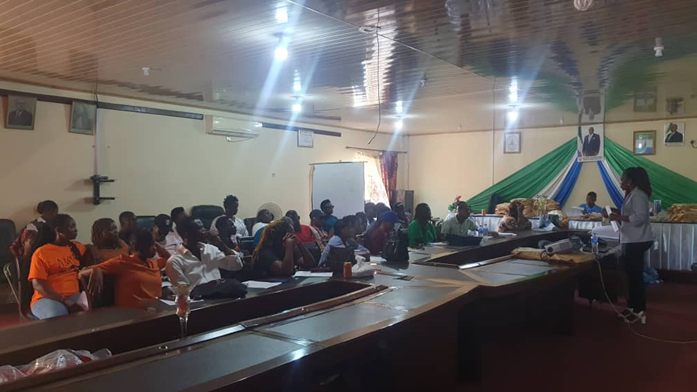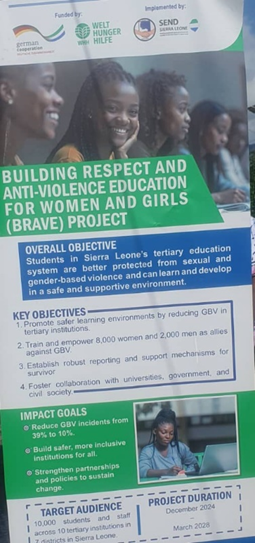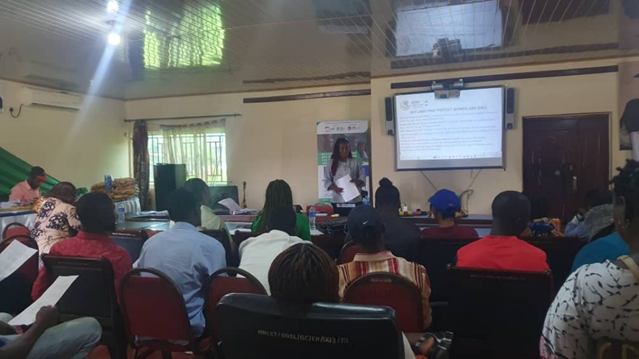By: Mariama Bundu
In a significant step toward creating safer academic spaces, SEND Sierra Leone recently conducted a one-day training on Gender-Based Violence (GBV) for students and lecturers at Milton Margai Technical University (MMTU). The session, held at the university’s conference hall, was organized under the umbrella of the “Building Respect and Anti-Violence Education for Women and Girls Project”, an initiative dedicated to fostering awareness, respect, and proactive responses to GBV within educational and community settings.
The training brought together a diverse group of participants, including undergraduate and postgraduate students, faculty members, and administrative staff. Through interactive discussions led by the facilitator, Augusta Nyembe, attendees explored the various manifestations of GBV and their impact on individuals and the broader community.
“GBV is not confined to one setting; it occurs in homes, schools, workplaces, and social environments,” Nyembe stated. “Understanding its many forms — from sexual harassment, domestic violence, and emotional abuse to economic exploitation — is essential for prevention and response.”
The facilitator highlighted real-world examples observed within university campuses and surrounding communities, emphasizing the importance of recognizing early warning signs and intervening appropriately. Participants also examined institutional mechanisms in place for addressing cases of GBV, including university policies, reporting channels, and awareness campaigns.

A key focus of the session was ensuring participants understood available referral pathways for survivors. Nyembe explained that victims can report incidents to the Family Support Unit (FSU) of the Sierra Leone Police, access medical care at health facilities, and receive psychosocial support from social welfare officers or civil society organizations. The facilitator stressed that timely intervention is critical in mitigating the long-term effects of violence on survivors.
Throughout the training, the moderator encouraged a collective responsibility in addressing GBV. “Preventing gender-based violence is not the sole responsibility of one individual or institution,” the moderator said. “Every student, lecturer, and community member has a role to play in fostering a culture of respect, accountability, and safety for women and girls.”
Participants described the session as both informative and empowering, noting that knowledge and awareness are powerful tools in the fight against GBV. Many expressed that the training had broadened their understanding of how societal norms, cultural practices, and institutional gaps contribute to the persistence of violence, and emphasized the importance of personal and community-level action to bring about change.

The “Building Respect and Anti-Violence Education for Women and Girls Project” continues to serve as a platform for advocacy, capacity-building, and dialogue, aiming to eliminate all forms of violence against women and girls across Sierra Leone. Through initiatives like this, SEND Sierra Leone seeks to empower young people, strengthen institutional responses, and encourage communities to work collectively toward creating safe and inclusive environments.
By engaging students and lecturers directly, the training at MMTU underscores the organization’s commitment to transforming education spaces into safe havens, where equality, respect, and protection are prioritized. For SEND Sierra Leone, the message is clear: ending gender-based violence requires knowledge, awareness, and a shared commitment to action.



